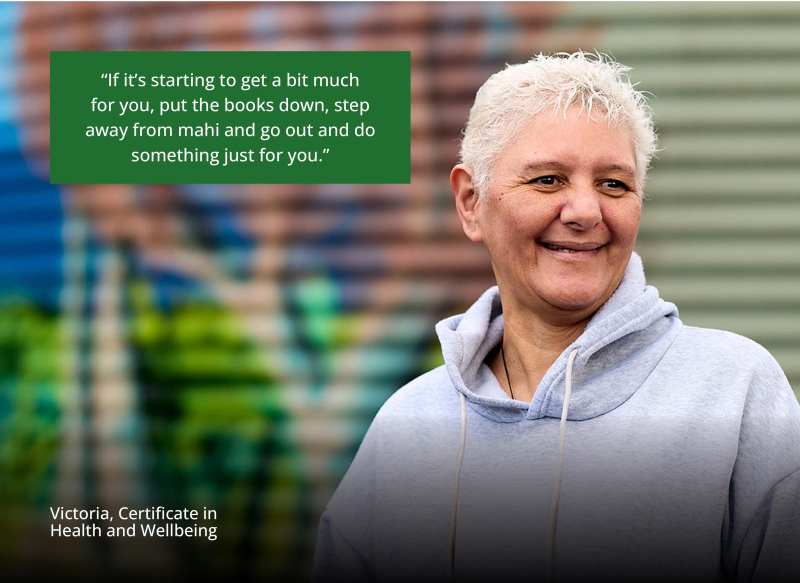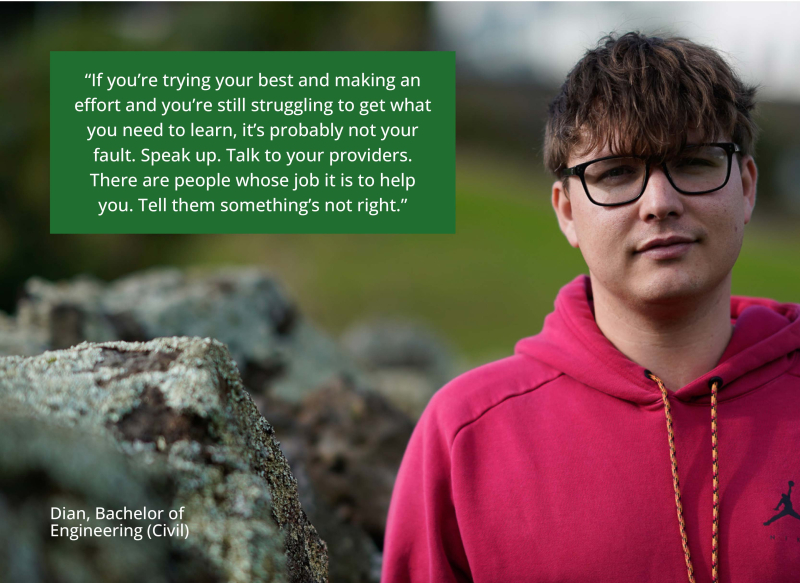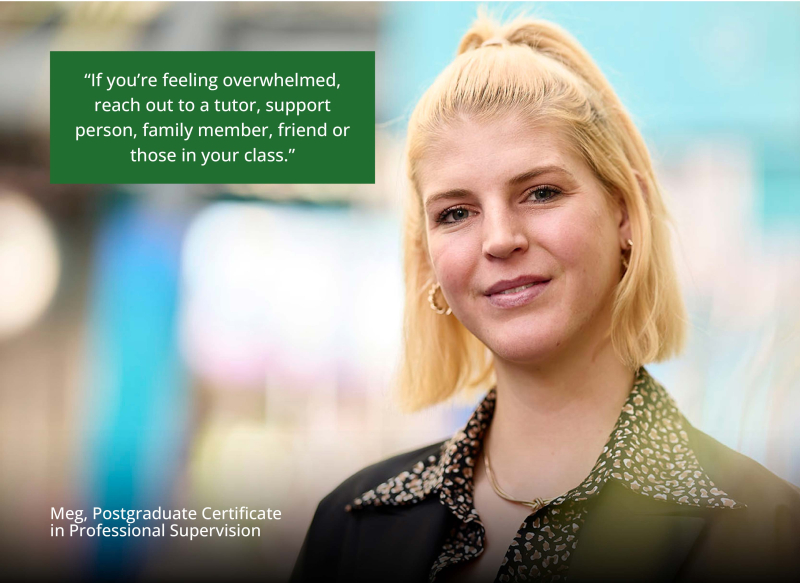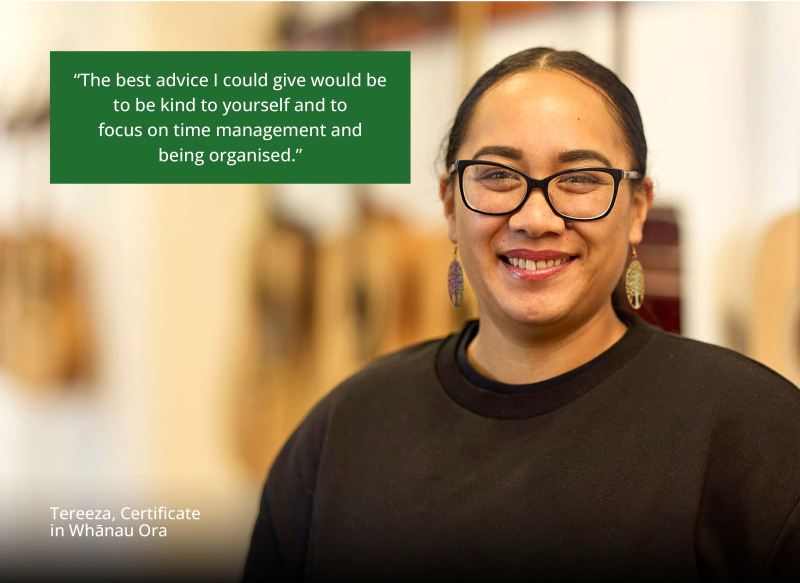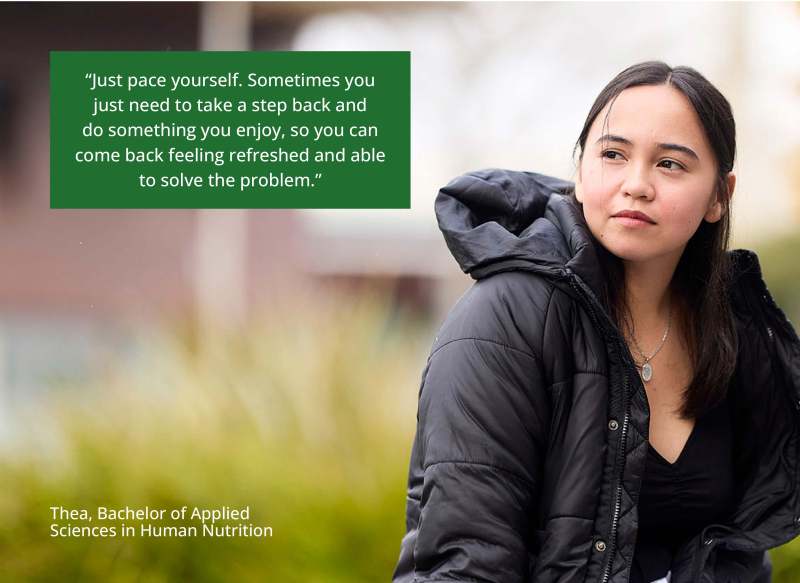
Getting through the tough stuff
Managing Stress
2 min read
Stress is a normal physical and emotional response to pressure, challenges or feeling overwhelmed. Short doses of stress can be healthy – pushing you to work hard and do your best.
But if you find yourself often feeling irritable or anxious, can’t relax and enjoy yourself, or your worries and fears are getting on top of you – now’s the time to take action.
Other signs your stress levels are too high include:
- Sleep problems
- Difficulty concentrating
- Sweating more than usual
- Having an upset stomach
- Feeling irritable and easily upset
- Quick, shallow breathing
- Low energy
- No motivation to study or meet course requirements
- -Disconnecting from whānau and friends.
Learning to manage stress is part of life, but it isn’t easy for anyone.
So, what can you do about it? Ākonga (learners) like you advised us that getting organised was the best way to manage study-related stress – from managing their time and blocking out their calendars, to chunking down work into manageable pieces and getting started early.
Mahia i runga i te rangimārie me te ngākau māhaki. With a peaceful mind and respectful heart, we will always get the best results.

“If you're feeling overwhelmed, my advice is to reach out to someone as soon as possible, whether that's your tutor or the support services that your campus provides. The sooner that you do that, the sooner you're going to be able to get ahead of whatever'”
Connor
Bachelor in Motion Design
Here are some other tips
Breaks are important – they’re an investment in your mental health and wellbeing, and even short breaks can boost your concentration and productivity. Schedule time every day to relax and recharge your batteries.
When you’re busy or stressed, it can be easy to forget to spend time with whānau and friends. But we all benefit from time with other people. You might be surprised by how much your stress levels drop when you take the time to connect with those who mean the most to you.
Ease up on coffee, drugs, alcohol and cigarettes. Even though it might feel like you need these things to cope with stress, your body really needs nutritious meals, some uplifting movement and as much as possible, to get to sleep at the same time each night. Struggle with sleep? Here are 10 tips to improve your sleep from Just a Thought.
Think about what’s causing your stress and when you feel it most, then list out a few things you could do to help address it. You’ll feel amazing as you tick things off! If you’re feeling overwhelmed, asking someone to help you create a plan could be just the ticket.
Different things work for different people – try this three minute breathing exercise from Just a Thought or this mindful watching video from Small Steps.
As soon as you feel you need help, reach out. Help from friends, whānau, peers, support services, colleagues, your employer, will help you to get through, see things with fresh eyes and start to feel better. If you feel like your stress is really getting on top of you, get in touch with a health professional like your doctor or Māori health provider. We all need support sometimes.
Advice from fellow learners
Draw from the experience of people who have walked in your shoes. You are not alone.



